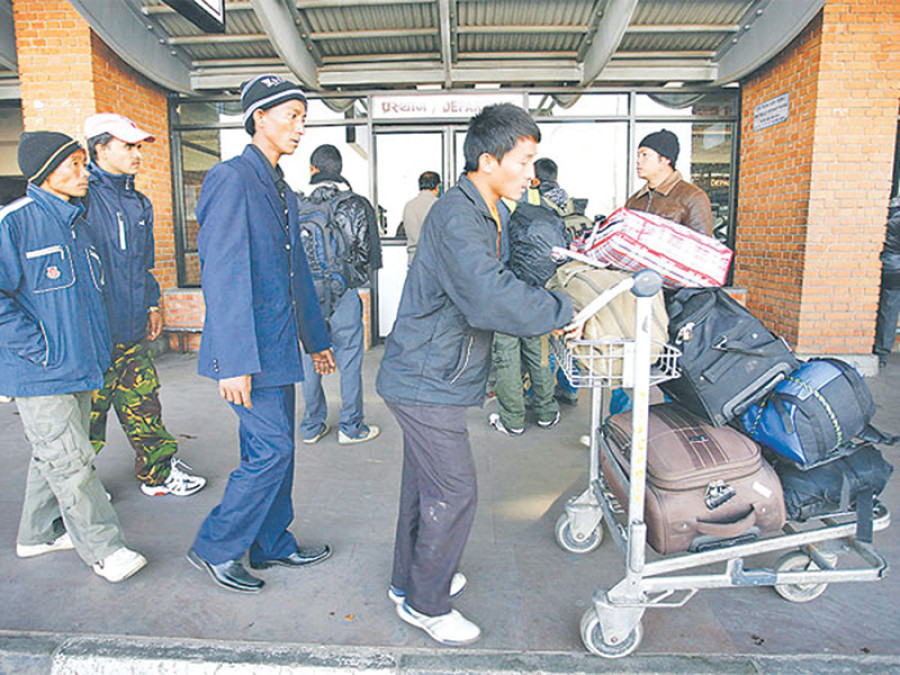Valley
MoFA failed to act, says House panel report
The Ministry of Foreign Affairs (MoFA) failed to act despite reports about human trafficking and officials from other state agencies, including the immigration department, colluded with human traffickers to send Nepali migrant workers to the Gulf, according to a parliamentary report released on Tuesday.
The Ministry of Foreign Affairs (MoFA) failed to act despite reports about human trafficking and officials from other state agencies, including the immigration department, colluded with human traffickers to send Nepali migrant workers to the Gulf, according to a parliamentary report released on Tuesday.
Several Nepali missions based in the Gulf had reported MoFA about dozens of individuals and companies involved in human trafficking, but the ministry turned a blind eye, says the report of a sub-committee of the International Relations and Labour Committee of Parliament.
A team headed by the then committee chairman Prabhu Sah had conducted a field study from March 18 to 27 to take stock of the situation of Nepali workers in Saudi Arabia, Qatar, Kuwait and the United Arab Emirates. None of the government bodies in the country has exact information on the number of Nepali migrant workers in the Gulf, says the report, adding that more than 60 percent of the domestic workers who reached the Gulf nations travelled through the Tribhuvan International Airport, the country’s only international airport.
The rest used different cities of India, Sri Lanka, China and various African countries.
Nepali missions in the Gulf had sent various reports related to human trafficking to MoFA, but it did not forward them to the Ministry of Home Affairs to initiate action the guilty, says the report.
When asked, MoFA Spokesperson Bharat Raj Poudyal refused to comment, saying the ministry was yet to receive the report.
Over 30,000 women from Nepal have reached Saudi Arabia illegally to work as domestic help and the number of women reaching other countries through the illegal channel operated in collusion with immigration officials and smugglers is equally high, the committee report says.
The team also found that condition of most of the women who had reached the Gulf countries to work as domestic help was not good. The majority of women working as housemaids were found to be paid too low and were living in squalid conditions.
Rights activists and labour experts have long been demanding that the government respond strongly and prudently to protect over four million Nepali migrant workers overseas—mostly in the Gulf and Malaysia.
According to the report, the House committee members had found during their interviews with around 1,000 women in the Gulf countries that they had suffered physical, mental and sexual violence.
Though the government has introduced “free ticket and free visa” provision—applicable to those going to Malaysia, Qatar, Saudi Arabia, the UAE, Kuwait, Bahrain and Oman—its implementation has been poor, according to the report.
Of those migrant workers in the four countries—Saudi Arabia, Kuwait, Qatar and the UAE—interviewed by the House committee members, none of them said they had reached there under the “free visa and free ticket” scheme.
According to government figures, nearly half a million Nepalis left the country
for various work destinations in 2015.




 14.24°C Kathmandu
14.24°C Kathmandu













